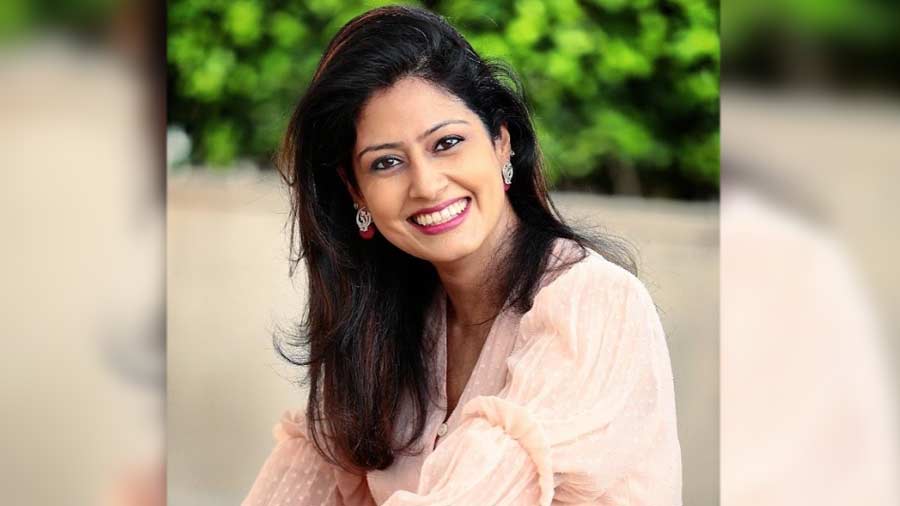“Network is equal to net worth” is one of the abiding mantras at Ladies Who Lead (LWL), a community of women achievers aimed at empowering, enabling and encouraging each other. Led by Aabha Bakaya, a recognisable face in Indian journalism, LWL has grown into an influential hub for expertise and engagement that allows women from a multitude of professions to come together and share their insights, stories and experiences. Having established itself in Delhi and Mumbai, LWL has its sights set on Kolkata, as well as other Indian cities where numerous female leaders are emerging across fields and sectors.
My Kolkata caught up with Aabha; edited excerpts from the conversation follow.
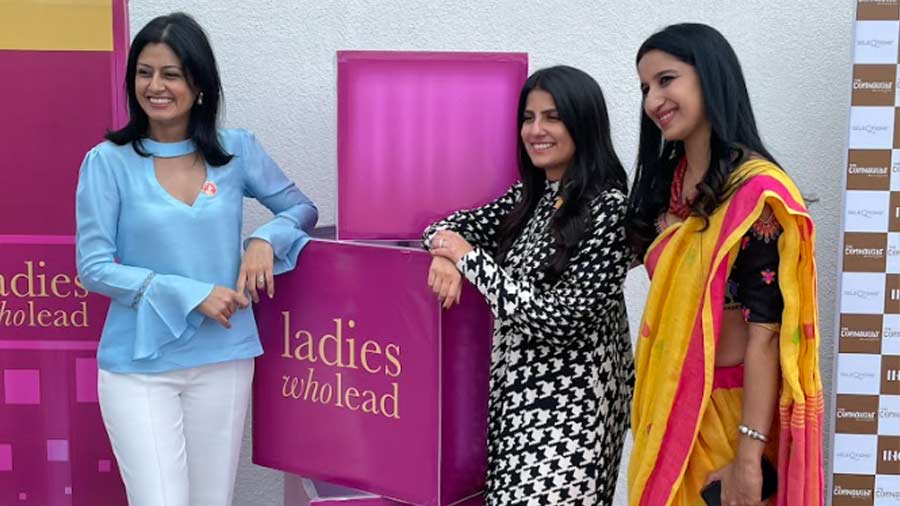
LWL organises a range of events, from soirees and workshops to roundtable discussions and exclusive experiences like polo matches Courtesy: Aabha Bakaya
My Kolkata: What was the vision behind founding Ladies Who Lead in 2018? What have you made of its journey so far?
Aabha Bakaya: I started by founding my own company called the Aabha Bakaya Network in 2018. At that time, the idea was to create content, and in the process, we also managed to organise gatherings involving some amazing women I knew. It was from there that Ladies Who Lead (LWL) was born. Originally, LWL was a more informal community, a group of like-minded women coming together, collaborating and having eye-opening conversations. During Covid-19, I returned to Delhi [from Mumbai] and went back to the drawing board. Along with my team, we started approaching investors and gradually articulated our vision to them. Thereafter, we jumped into the deep end and officially launched membership for LWL in September 2021, starting in Delhi and Mumbai simultaneously.
Today, we have a full-fledged team managing the operations of LWL. We’re also working at a much faster pace to keep up with the increasing members and the ways they can benefit from being a part of LWL.
‘We’ve had a lot of stakeholder interest from Kolkata’
Do you have any plans for expansion right now beyond Delhi and Mumbai? Maybe coming to Kolkata, for instance?
Yes, absolutely. We really want to expand and would love to come to Kolkata. We’ve had a lot of stakeholder interest from Kolkata, as well as from cities like Surat, Raipur, Ahmedabad, among others. The great thing about our events is that we often have women travelling from different cities to attend. So, we have the presence of women based in Kolkata in our events at Delhi or Mumbai. In terms of expansion, Bengaluru and Hyderabad are also no-brainers. We’ve already had members signing up from there. It’s just a matter of time before we expand, starting out with local chapters before scaling up further.
‘We believe in personalised interactions, engagements and experiences’
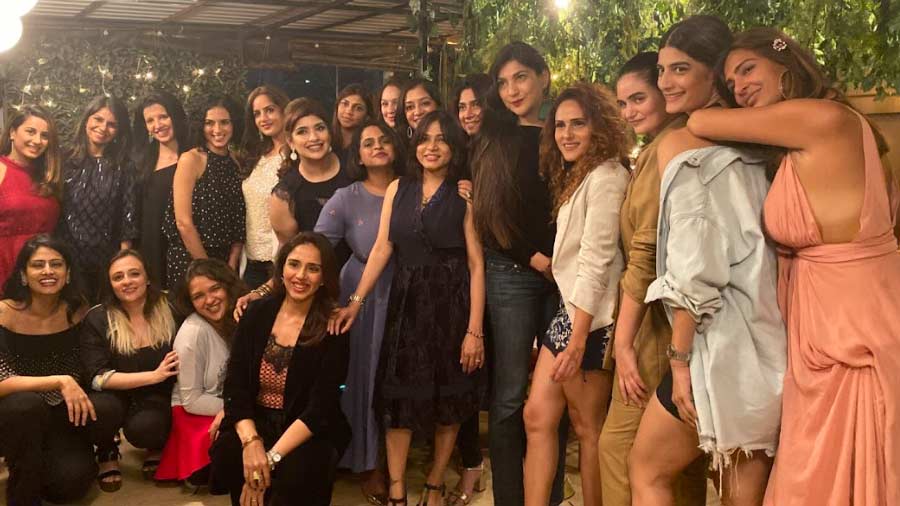
LWL provides a platform for women achievers to network within and beyond their own fields Ladies Who Lead
What is the secret to building lasting networks that go beyond superficial connections?
At LWL, we believe in personalised interactions, engagements and experiences. Whether we organise events in large gatherings of 50 people and above or in slightly smaller gatherings of 15 to 20 people, we want all participants to engage and take something back, be it through one-on-one interactions with each other or from discussions with the guest or expert. We do our best to ensure that the conversation is rich and stimulating and that women from different fields get to know each other besides developing deeper connections with women from their own fields. Another way we help people build relationships is through recurring events, such as the one we organise with female founders at our Expresso Mentor Sessions. We’ve come to understand that the more time founders spend with investors and other potential stakeholders, the greater impact it has on them, both in terms of their values and vision.
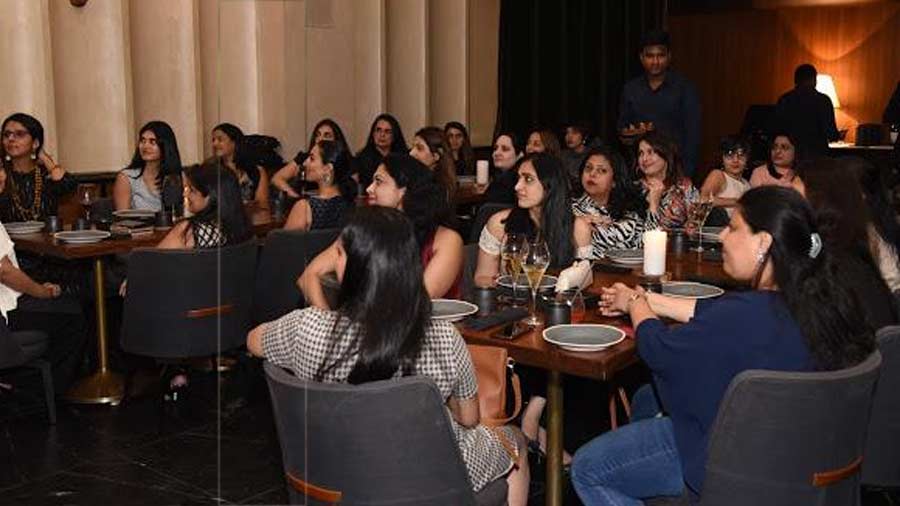
LWL’s signature event is its annual Women’s Day soiree or brunch Ladies Who Lead
Could you give us a few examples of the kind of events organised by LWL, including your signature events?
Our signature event is the soiree or brunch that we host annually on Women’s Day. They’re always a big hit and a great occasion for everyone to come and meet each other. We have a similar celebration towards the end of the calendar year, too, which is a fantastic platform for women to share their achievements and experiences across the year. During the year, we also have a lot of exclusive, signature experiences for our members. For instance, we had a private polo match where members received training from professional players, which was a unique experience for everyone involved. Apart from that, we have regular sessions with female leaders from different backgrounds and industries as well as roundtables with female experts on subjects that are trending across industries, be it finance, travel or others. Recently, we’ve also started workshops, such as our workshop on emotional bonding and a three-in-one on soft skills, digital marketing and public relations, which are meant to be in-person and experiential.
‘What we’re missing is a drive to take policies for working women forward’
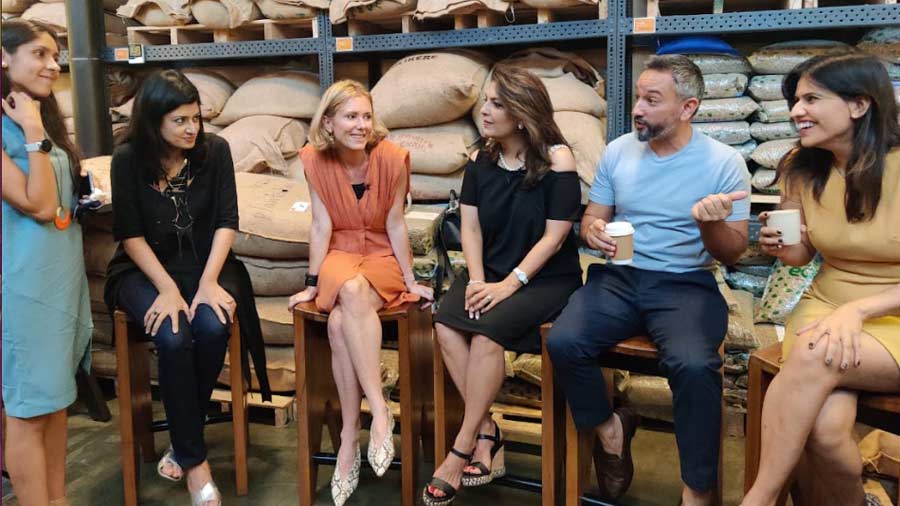
Aabha feels that sometimes women need a push, be it from their family or their employer, in order to help them transition back into work Courtesy: Aabha Bakaya
Through your experience at Ladies Who Lead as well as your network of female professionals across the country, what would you identify as the biggest systemic or structural challenges for women in India?
We know that the highest drop-off rates for working women is when they have to stay out of the workforce during the process of childbirth and child rearing. But, of late, we’re seeing more organisations make a concerted effort to help women transition back into the workforce. We’re also seeing more women who are willing to return after becoming mothers, even among women who’ve been away for five years. There’s no doubt that we have a long way to go, but what is becoming clear is that there are policies looking to make a change.
But in terms of systemic or structural challenges, I’d say that what we’re missing is a drive to take those policies forward. Women aren’t always aware of their options, and even if they are, sometimes you need a bit of a push, be it from your family or your employers. Just having something in the fine print isn’t enough. You need personnel on the ground who’ll help women in coming back to work as well as in other ways, such as flexi work.
‘It’s taken for granted that men will network… when a woman does it, questions are asked’
In a lot of conversations with women achievers, one point that keeps recurring is that there are not enough women in decision-making positions across industries. What is your take on this?
I don’t know if there’s a single, foolproof solution for this. I know a lot of women who are taking up independent courses on leadership, be it on how to become a better director or handling issues of corporate governance. But another thing that can really help is networking. Women, on average, don’t network, certainly not as much as compared to men. When you talk about networking to women, many of them say that they don’t have time for social activities. But networking isn’t just socialisation, it’s meaningful engagement. Men do it all the time, be it at golfing rounds, cigar clubs or whisky sessions. It’s taken for granted that they will. But when a woman does it, questions are asked about why she is taking the time out to socialise, more so for women who have children. Moreover, sometimes it’s just about asking someone for help, like we do at LWL, where our members have full freedom to ask any leader they meet for time to sit down and engage. It’s those engagements that often make a difference when it comes to leadership.

Empathy and productivity are generally higher among female leaders, says Aabha Courtesy: Aabha Bakaya
‘For a woman in a boardroom, there’s still a lot of bias in terms of how you should dress, how you should speak…’
What do you think are the exclusive skills women bring on board as leaders, which are rare or largely absent in men?
Women are definitely more empathetic. Earlier, it wasn’t something that was valued properly, but it’s changing now. Women can sometimes be more productive because of their attention to detail and their tendency to break down something complex into several simple stages and departments. There are mixed reports on the risk factor and whether women make better risk-takers. But I think on the whole we’re still a while away from women being able to entirely embrace their femininity without it having an impact on their perception as leaders. When you enter a boardroom as a woman, there’s still a lot of bias in terms of how you should dress, how you should speak and how you should command attention.
‘As of now, India is still very much a television market’
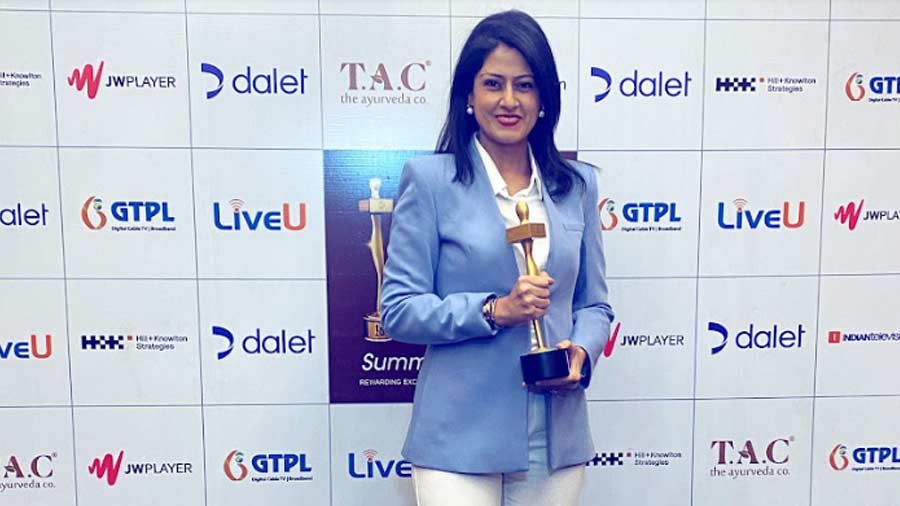
The advent of digital media and the emergence of opinion in television news have been major changes, argues Aabha Twitter/Aabha Bakaya
You have been in television journalism for more than two decades. How would you say television journalism has changed in India during this time, and in all these years what are some of the things you have enjoyed the most?
I loved my conversations with entrepreneurs, especially those who I got to interview when they were starting out. It’s wonderful to see them go on their growth journey and become household names. I’ve always found it fascinating to track the entrepreneurial ecosystem.
As far as changes in television journalism go, the biggest change has definitely been the advent of digital journalism. Most broadcast networks are looking at a package of television and digital as the way forward. There’s also a lot of independent digital media that’s come up. For me, the jury is still out on what’s working best, but as of now, India is still very much a television market. Pretty much everyone still watches the news. The other big change is how television journalism has become a platform for opinions and the amplification of conversation. Of course, it still remains a source of information, but with so much of information online, it’s the conversation and opinion aspect of broadcast that gives it an edge today.
What does the road ahead look like for Ladies Who Lead?
We have a lot of goals around expanding members, events, reach and properties. Specifically speaking, you can expect a lot coming up in terms of finance, travel and mentorship modules.
